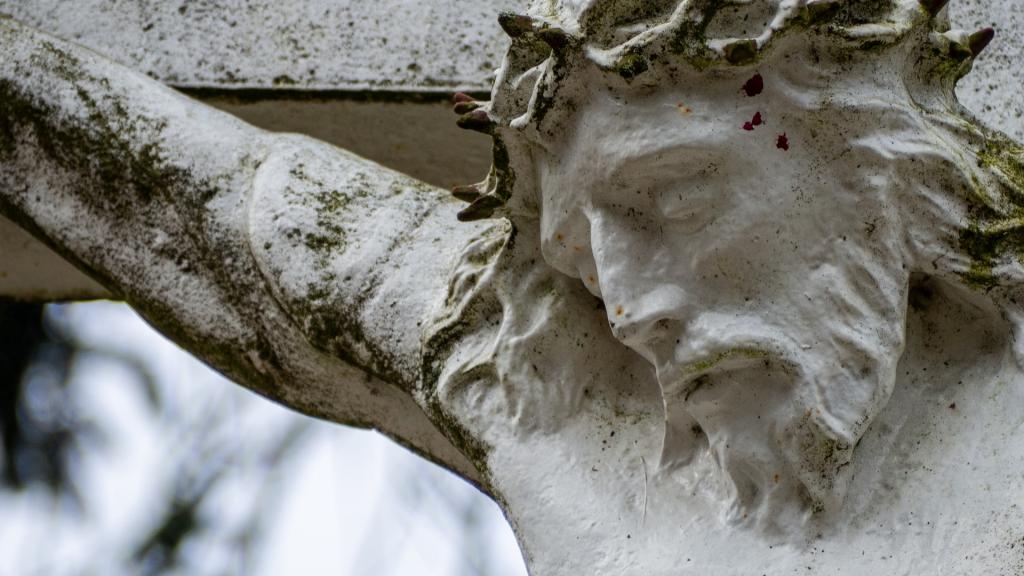Today’s meditation reflects on the fourth of the Last Seven Words of Jesus. All seven passages are from the Gospels, and they often serve as the focus of the church’s prayers on Good Friday. Given the length of each mediation, I have chosen to offer one a day, ending on Good Friday. This is the second of eight meditations.
Then come what are, perhaps, the most troubling words of all from Jesus. “My God, my God, why have you forsaken me?”
Theologians have strained to understand these words. Luther’s reaction was simply, “What can one say?” and, having asked the question, he said nothing further. Others have woven heresies out of it, and most Christians rush on ahead to Easter, leaving “Good” Friday behind.
The problem is, that if we refuse to contemplate what Jesus felt, then we fail to grasp the divine choice to embrace us where we live. Who needs a Savior who has only seen the movie? A Savior who suffers, but knows the suffering will end? A Savior who dies, but knows that resurrection is only three days away? How can that kind of Savior speak to our fundamental fears: The fear of being overwhelmed, the fear of meaninglessness, the fear of abandonment, and, worst of all perhaps, the fear of extinction — of being lost to ourselves and to those we love and, finally, of being lost to God?
Erase these words and their visceral content, or deny the gut-wrenching reality that lies behind them, and Jesus is useless to us. The result is the smiling, saccharine preacher of the health and wealth Gospel, promising lives that are untouched by grief and hearts that are unmoved by death. That theme in contemporary theology has become so common, that some claim that those who are untouched and unmoved are the only truly spiritual giants. But nothing could be further from the truth.
Writing to his father on the occasion of his mother’s death, Father Henri Nouwen puts the lie to that kind of nonsense:
As I reflect on mother’s death, something that I could not see as clearly as before is now becoming more visible to me. It is that death does not belong to God. God did not create death. God does not want death. God does not desire death for us. In God there is no death. God is a God of life….Death, therefore, must be experienced by a really religious person neither as a release from the tension of life nor as an occasion for rest and peace, but as an absurd, ungodly, dark nothingness….If anyone should protest against death it is the religious person, the person who has increasingly come to know God as the God of the living.[i]
Nouwen is right. Jesus conquers and says “no” to death and the grave by actively embracing them. But it is not a life of endless breathing, sleeping, and eating that he retrieves from hell on this day. He embraces death to break the power of anything that might separate us from God, whose presence is the essence of life eternal — life given to us now and in all its fullness in the life to come.
Is it possible, then, to argue that Christ died to make us happy? Or to give us a place to wander mindlessly through a ritual that leaves us with the satisfaction that we’ve checked off another religious obligation? Or a different, “churchie” environment to work out our politics?
Hardly.
Jesus utters the words, “My God, my God, why have you forsaken me?” so that we do not need to suffer the same fate. And the life of the church is, then, a journey into that God whose embrace cannot be broken, and it is out of that embrace that we live.
As such, we participate in a much larger reality than the mere lengthening of our own existence. We participate in the life of the one who claims to be the author of life and who has vindicated that claim by moving into that place where it seemed death might triumph.
+++++++
“My God, My God,
Why have you forsaken me?”
And with those words
You enter our sense of alienation,
You come alongside us in our loneliness,
And there we are embraced,
With an embrace that cannot be broken.
Photo by Wim van ‘t Einde on Unsplash
[i] Nouwen, Letter of Consolation, 75-76.










